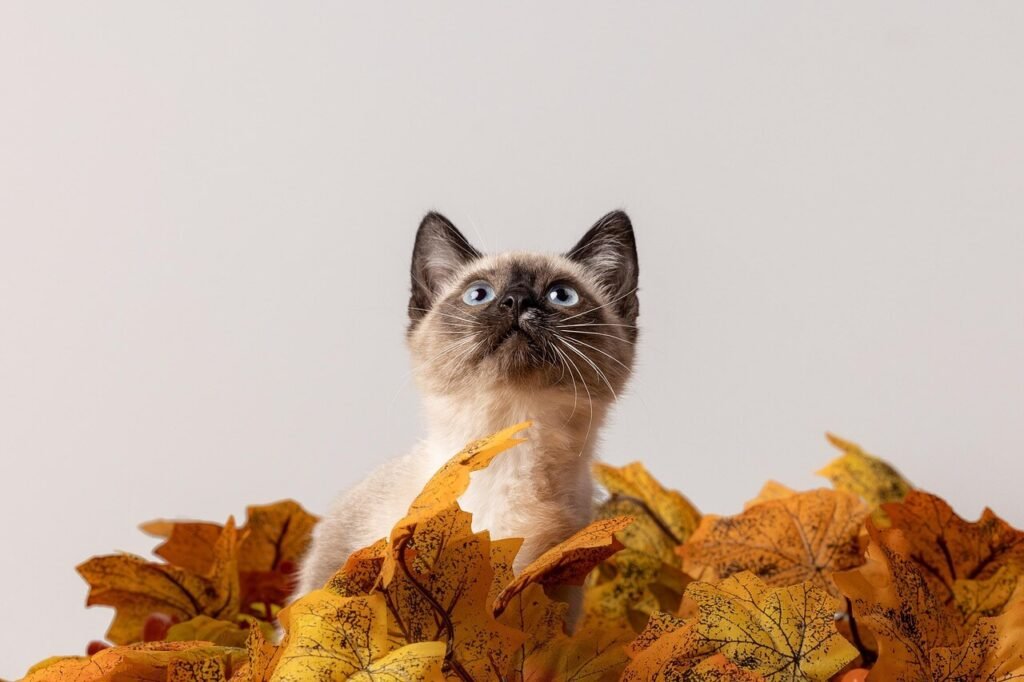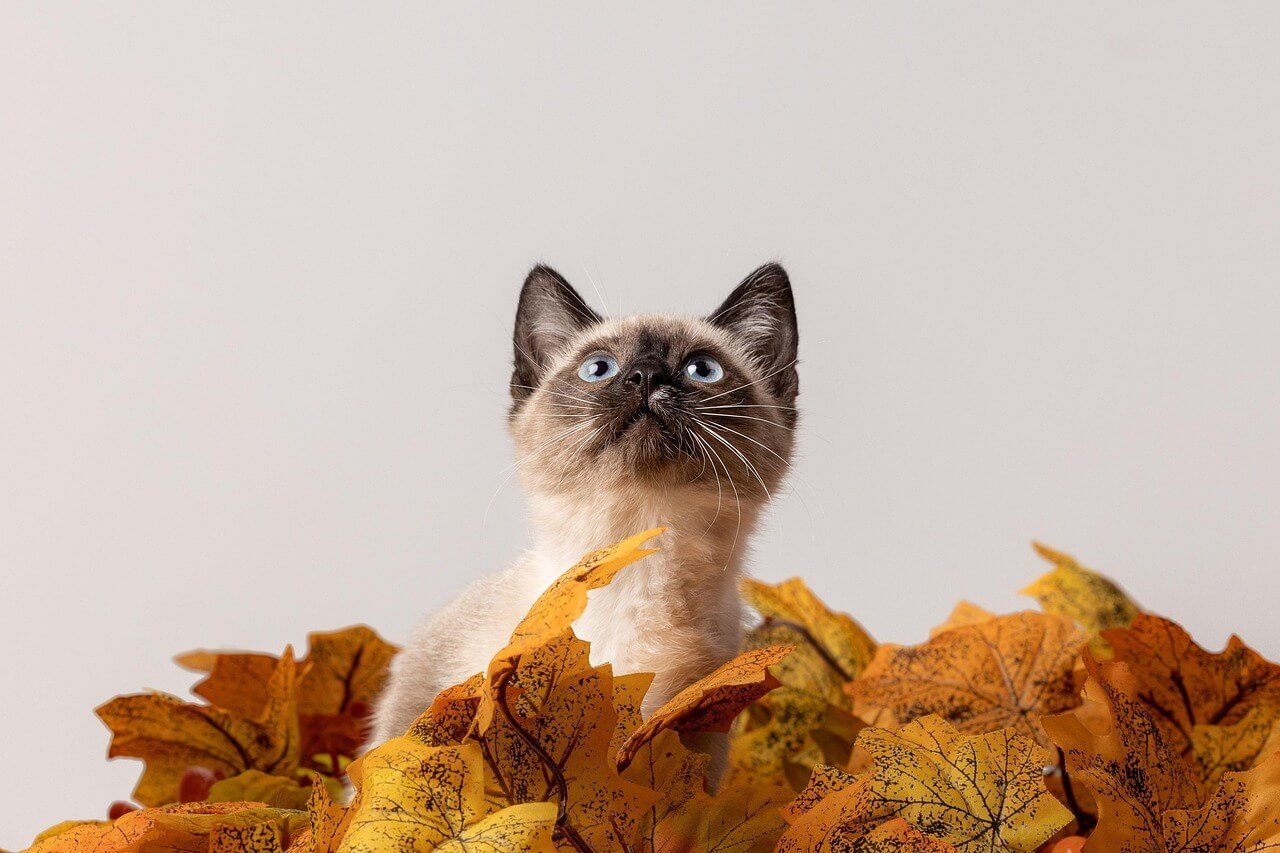Why Does My Cat Lick My Nose?
Cats are mysterious creatures, and their behaviors often leave us wondering what’s going through their minds. One such behavior that many cat owners have experienced is the unexpected nose lick. It might feel strange—or even a little funny—when your feline friend decides to give your nose a gentle swipe with their tongue. But why do cats engage in this quirky behavior? In this blog post, we’ll explore the reasons behind this endearing act and uncover what it means for your bond with your furry companion.
Understanding Your Cat’s Behavior: Is Nose Licking Normal?
Before diving into the “why,” let’s address whether nose licking is normal behavior for cats. The short answer is yes—it’s completely natural! Cats use licking as a form of communication, grooming, and bonding. Here’s a breakdown of what this behavior could mean:
Affection and Bonding
Cats often lick those they trust as a sign of affection. By licking your nose, your cat may be expressing love and strengthening your connection.Marking Territory
Cats have scent glands in their mouths, and licking can help them mark you as part of their territory. It’s their way of saying, “You’re mine!”Curiosity
Cats are naturally curious creatures. If there’s something unusual about your scent or taste on your nose, they might investigate by licking.Comfort and Familiarity
Licking can be soothing for cats. If your cat feels comfortable around you, they might lick your nose to mimic the comforting feeling of grooming themselves.Instinctual Behavior
Mother cats groom their kittens by licking, so this action could stem from an instinctual desire to care for you.
In conclusion, nose licking is a multifaceted behavior rooted in trust, curiosity, and affection. Understanding these motivations can deepen your appreciation for your cat’s unique personality.
What Your Cat Might Be Trying to Tell You
Your cat’s nose-licking habit isn’t random—it’s a form of communication. Here are some possible messages they’re trying to convey:
“I Trust You”
Cats only show vulnerability around those they trust. Licking your nose indicates they feel safe with you.“You Smell Interesting”
Cats rely heavily on their sense of smell. If you’ve recently used lotion, sunscreen, or eaten something flavorful, your nose might catch their attention.“I Want Attention”
Sometimes, cats lick to get your focus. They know it’s hard to ignore such a direct gesture!“Let’s Play!”
Cats often initiate playtime through physical interactions. A nose lick might be their playful way of inviting you to engage.“I’m Feeling Stressed”
Licking can also be a self-soothing mechanism. If your cat seems anxious, they might turn to you for comfort.
Ultimately, your cat’s nose-licking behavior reflects their emotions and needs. Paying attention to context can help you interpret their intentions more accurately.
Check this guide 👉 Why Did My Cat Attack Me? Best 7 Expert Behavior Tips!
Check this guide 👉 Why Does a Cat Keep Coming to My House? Best 7 Tips!
Check this guide 👉 Why Does My Cat Lick Me When I Pet Her? Best 7 Expert Tips!

Behavior | Meaning |
|---|---|
Nose Licking | A sign of affection, curiosity, or territorial marking |
Head Butting | Demonstrates trust and marks you with their scent |
Purring | Indicates contentment, relaxation, or sometimes discomfort |
Kneading | Shows happiness and mimics kittenhood memories |
Slow Blinking | Communicates trust and affection |
How to Respond When Your Cat Licks Your Nose
If your cat has made nose licking a regular habit, you might wonder how best to respond. Here are some tips:
Stay Calm and Relaxed
Reacting dramatically (like pulling away quickly) might confuse or startle your cat. Instead, remain calm to reinforce positive feelings.Reward the Behavior
If you enjoy the interaction, offer gentle praise or a treat to encourage the behavior in appropriate settings.Redirect Excessive Licking
While occasional licking is harmless, excessive licking might indicate boredom or stress. Provide toys or activities to redirect their energy.Check for Underlying Issues
If the licking becomes obsessive, consult your veterinarian to rule out medical or behavioral concerns.Set Boundaries Gently
If you’re not fond of nose licking, gently move your head away without scolding. Consistency will help your cat learn your preferences.
By responding thoughtfully, you can maintain a healthy balance between respecting your cat’s instincts and setting boundaries.
Common Misconceptions About Cat Licking
There are several myths surrounding why cats lick humans. Let’s debunk a few:
Myth: Cats Only Lick People They View as Inferior
False. Cats lick those they trust and consider part of their family—not because they see them as inferior.Myth: Licking Means Your Cat Thinks You’re Dirty
Not necessarily. While grooming serves hygienic purposes among cats, licking humans is more about affection than cleanliness.Myth: All Cats Lick Their Owners
Incorrect. Every cat is different. Some cats express affection differently, such as through purring or cuddling.Myth: Licking Always Indicates Hunger
No. While food-related scents might attract your cat, licking isn’t always linked to hunger.Myth: Cats Stop Licking Once They Grow Older
Untrue. Adult cats continue licking as a lifelong expression of trust and bonding.
Understanding these misconceptions ensures you interpret your cat’s actions accurately and appreciate their unique personality.
Benefits of Understanding Your Cat’s Licking Behavior
Understanding why your cat licks your nose can enhance your relationship and improve communication. Here are some key benefits:
Strengthened Bond
Recognizing licking as a sign of affection helps you appreciate the depth of your connection with your cat.Improved Communication
By interpreting their behavior accurately, you can better respond to their needs and emotions.Early Detection of Issues
Sudden changes in licking patterns may signal stress or health problems, allowing you to address them promptly.Enhanced Trust
Responding positively to their actions fosters mutual trust and security.Better Coexistence
Knowing what drives certain behaviors makes living together more harmonious and enjoyable.
By understanding your cat’s licking habits, you create a foundation for a stronger, healthier relationship that benefits both of you.
Tips for Encouraging Positive Interactions
If you want to encourage positive interactions while respecting your cat’s natural instincts, consider these tips:
Provide Alternatives
Offer toys or scratching posts to redirect their attention if they become overly focused on licking.Engage in Playtime
Regular play sessions help channel their energy into fun activities instead of excessive grooming.Maintain a Routine
Cats thrive on consistency. Stick to feeding, playing, and cuddling schedules to reduce stress-related behaviors.Use Positive Reinforcement
Reward desirable behaviors with treats, praise, or gentle petting to reinforce good habits.Respect Their Boundaries
If your cat seems uninterested in interaction, give them space to avoid overwhelming them.
By incorporating these strategies, you can nurture a balanced and joyful dynamic with your feline companion.
Signs That Licking Might Be a Problem
While occasional licking is normal, excessive or obsessive licking could indicate underlying issues. Here are signs to watch out for:
Frequent Licking Without Provocation
If your cat licks excessively without any apparent reason, it might signal anxiety or discomfort.Changes in Personality
Sudden shifts in behavior, such as increased clinginess or aggression, could accompany problematic licking.Skin Irritation or Hair Loss
Over-grooming themselves or others might lead to skin irritation or bald patches.Excessive Drooling
Unusual drooling during or after licking could point to dental issues or nausea.Avoidance of Other Activities
If your cat neglects eating, playing, or sleeping due to constant licking, it’s time to investigate further.
If you notice any of these signs, consult your veterinarian to rule out medical or behavioral concerns and ensure your cat stays happy and healthy.
Frequently Asked Questions (FAQ)
Why does my cat only lick my nose and not other parts of my face?
Cats tend to target areas with distinct scents or textures. Your nose might stand out due to its warmth, moisture, or lingering smells.
Should I stop my cat from licking my nose?
If you’re comfortable with it, there’s no harm in letting your cat lick your nose. However, if you prefer otherwise, gently redirect their attention.
Can nose licking spread diseases?
Generally, no. However, ensure good hygiene practices, especially if you have open wounds or compromised immunity.
Do all breeds of cats lick noses?
Most breeds exhibit similar behaviors, but individual personalities vary widely.
What if my cat suddenly stops licking my nose?
Sudden changes in behavior could indicate stress, illness, or shifts in routine. Monitor your cat closely and consult a vet if needed.
Conclusion: Celebrating Your Unique Bond
Cats communicate in ways that are both subtle and profound, and nose licking is just one example of their rich emotional language. Whether driven by affection, curiosity, or instinct, this behavior highlights the special bond you share with your feline friend. By observing and understanding your cat’s actions, you can nurture a deeper connection and create a harmonious environment for both of you. So next time your cat gives your nose a little lick, take it as a compliment—they’ve chosen you as someone truly special in their world.
Cat Anaphylactic Shock Treatment Costs: Best 7 Expert Tips! – Learn about costs, treatments, and financial aid options to save your cat’s life.
Exocrine Pancreatic Insufficiency in Cats: Best 7 Tips! – Learn to spot symptoms, manage EPI effectively, and improve your cat’s quality of life with expert advice.
Cost of Dog Anaphylactic Shock Treatment: Best 7 Tips! – Learn about emergency costs, financial planning, and ways to manage expenses for your dog’s care.
Exocrine Pancreatic Insufficiency in Dogs: Best 7 Tips! – Learn to spot symptoms, manage EPI effectively, and improve your dog’s quality of life with expert guidance.





